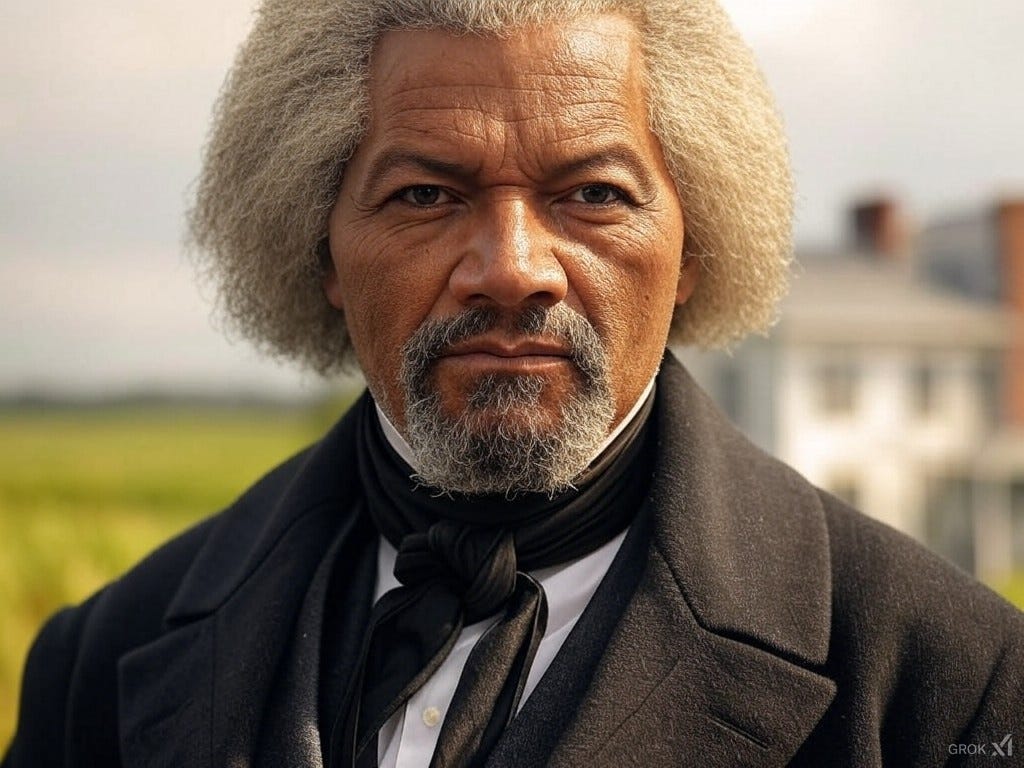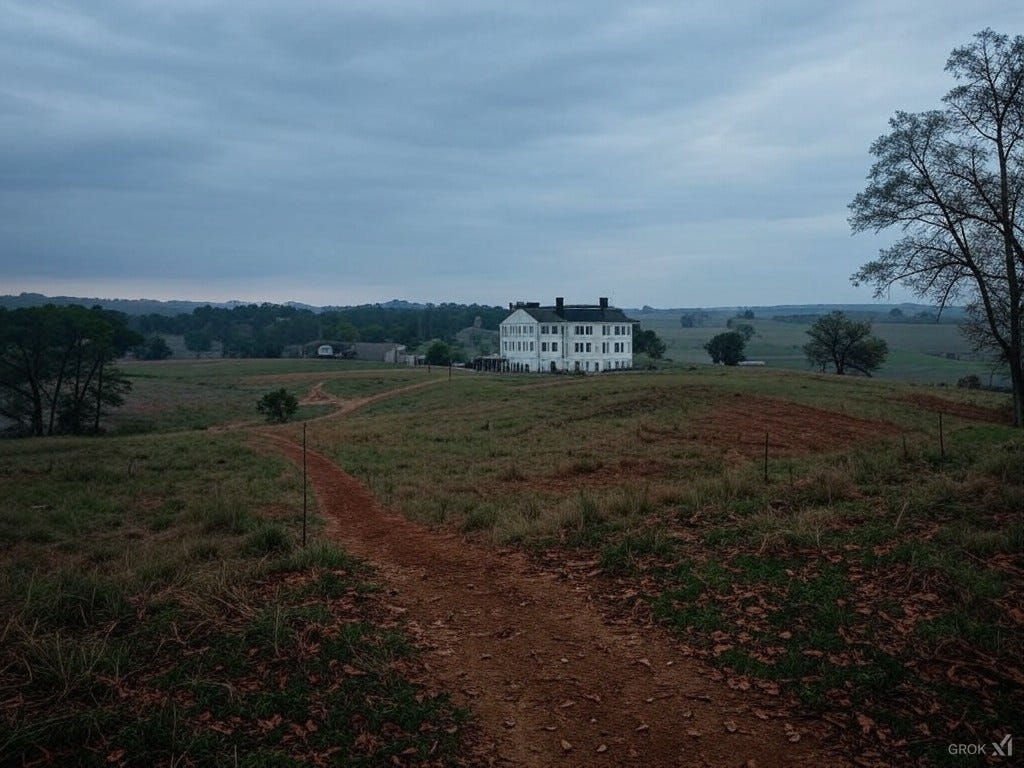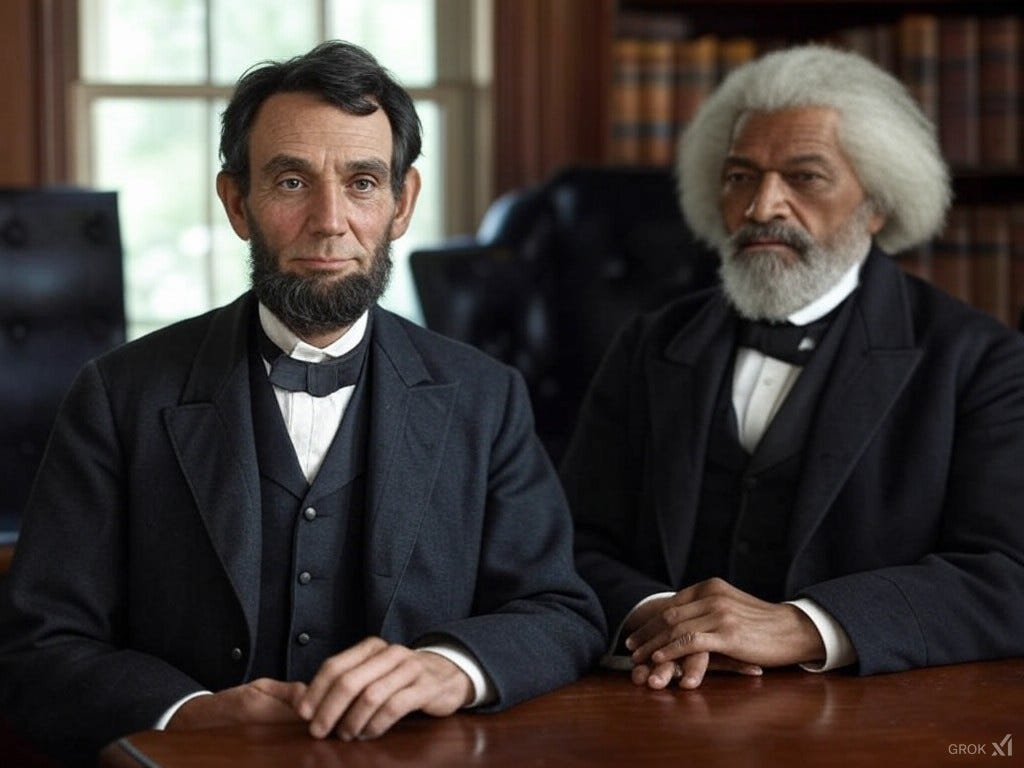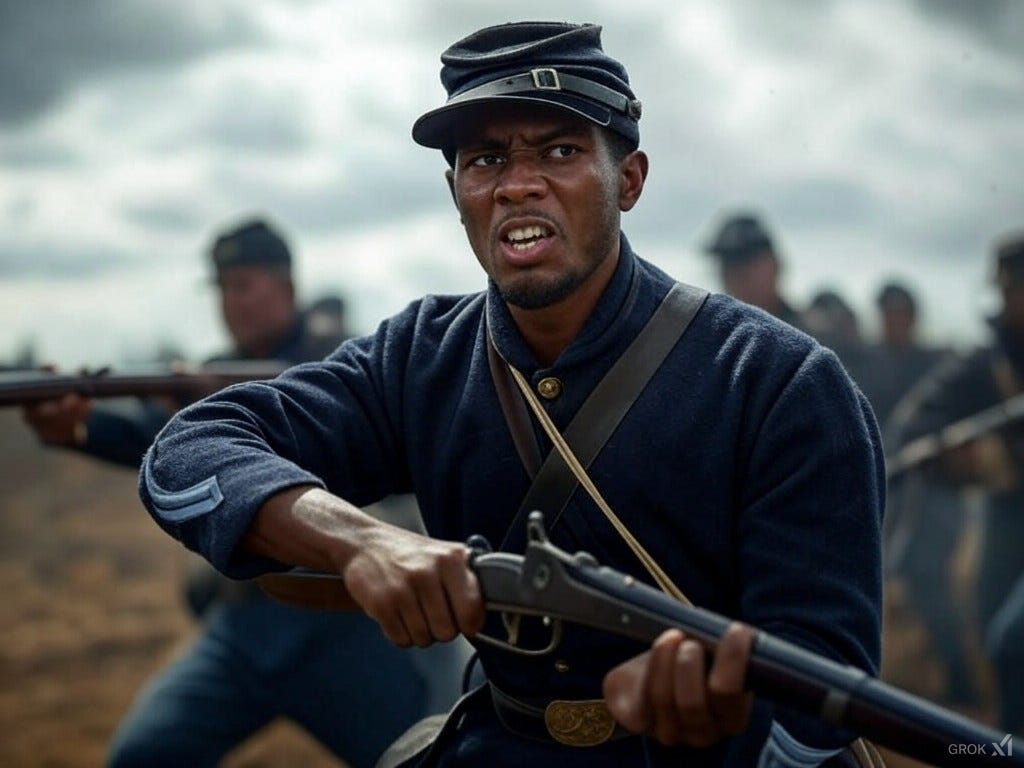I Have no Accurate Knowledge of my Age, Never Having Seen any Authentic Record Containing It
Unwrapping the Relentless Advocacy of Freedom, Justice and Equality of Frederick Douglass
February marks Black History Month, a tradition dedicated to honoring the achievements of Black individuals in the United States and, more recently, around the world. But how many of us truly know the origins of this powerful platform for knowledge?
The mastermind behind Black History Month was historian Carter G. Woodson, a man of humble origins. Born into poverty, his parents—both formerly enslaved and illiterate—instilled in him the value of education. Despite facing immense hardships, Woodson worked tirelessly in fields and coal mines while pursuing his studies. His determination eventually led him to earn a Ph.D. in history from Harvard University.
Believing that Black history deserved recognition, he sought to illuminate the successes and contributions of Black people across various fields. In 1915, during the 50th anniversary of the abolition of slavery, Woodson founded the Association for the Study of Negro Life and History. A decade later, in 1926, he launched Negro History Week, a dedicated period to commemorate Black history. He strategically placed it in February, aligning it with the birth months of Abraham Lincoln (who abolished slavery) and Frederick Douglass (one of the most influential Black rights advocates).
In 1986, the U.S. Congress extended the celebration, transforming it into Black History Month—a national tribute to the history, resilience, and contributions of African Americans.
With that in mind, it is essential to explore the life of the towering historical figure who inspired this initiative: Frederick Douglass. This article aims to shed light on his extraordinary journey—a man who, despite never knowing his exact birth date, defied the odds as an escaped slave to become an inspiring orator, a relentless freedom advocate, and one of the most influential intellectuals of the 19th century.
🔥 Life 🍼📜
Around 1817, Frederick Douglass was born in Talbot County, Maryland. He was the son of Harriet Bailey, a Black enslaved woman, and an unknown father—likely his enslaver. Shortly after his birth, mother and son were separated. They could only see each other in secrecy until Harriet’s death seven years later. Douglass later recalled:
“I never saw my mother to know her as such more than four or five times in my life; and each of these times was short in duration and at night… She made her journeys to see me in the night, traveling the whole distance on foot, after the performance of her day’s work… I do not recollect ever seeing my mother by the light of day. She would lie down with me and get me to sleep, but long before I waked she was gone.”
Douglass spent his early childhood on Wye Plantation, where he first witnessed the brutalities of Aaron Anthony, an overseer. At age eight, he was sent to the Auld family in Baltimore to serve as a companion for their son, Thomas.
At twelve, Douglass was transferred to Hugh and Sophia Auld’s household. Despite laws prohibiting it, Sophia began teaching him the alphabet and the basics of reading. When Hugh Auld discovered this, he forbade her from continuing. Rather than discouraging him, this ignited Douglass’s determination to educate himself.
He secretly honed his literacy skills by observing white children and practicing in secret. His first major book was The Columbian Orator, a collection of speeches and essays widely used in classrooms.
At sixteen, Douglass was sent to the plantation of Edward Covey, a man infamous for his cruelty toward enslaved people. There, he endured relentless beatings and psychological torment. He later wrote:
“I lived with Mr. Covey one year. During the first six months of that year, scarce a week passed without his whipping me. I was seldom free from a sore back… We were worked fully up to the point of endurance. Long before day we were up, our horses fed, and by the first approach of day we were off to the field with our hoes and ploughing teams… We were often in the field from the first approach of day till its last lingering ray had left us; and at saving-fodder time, midnight often caught us in the field binding blades.”
Covey’s constant abuse fueled Douglass’s spirit of resistance. One day, he fought back. That moment marked a turning point—Douglass realized that enslavement was not his destiny. He began to conceive a life unchained.
🔥From being Slave to Renowned Intellectual and Political Activist ⛓️➡️📖🗣️

Douglass disguised himself as a sailor and borrowed the papers of a free Black seaman. He feared being caught by officials because the document attesting to his liberty provided a slightly different description of him. After overcoming scrutiny, he reached New York in less than 24 hours from Baltimore. Despite being de facto free, Douglass was still de jure an escaped slave, and New York was full of slave catchers. He was helped by David Riggles to find a better place to hide. After hiding in New York, he settled in New Bedford, Massachusetts, with his wife and began to advocate as a Black abolitionist.
On August 11, 1841, Frederick Douglass delivered his first public speech to an all-white audience in Nantucket, Massachusetts. While there is no official record of his remarks, Douglass left a strong impression on the attendees. After the speech, he was approached by William Lloyd Garrison of the Anti-Slavery Society and invited to join the organization. Douglass was able to vividly describe the atrocities of slavery, and Garrison recognized the need for an activist with great oratory skills who had directly experienced the brutality of that inhumane system.
In September 1845, Frederick Douglass published his autobiography, Narrative of the Life of Frederick Douglass, an American Slave, Written by Himself. The book became an instant bestseller. Its powerful prose led some to doubt that a Black person could possess such advanced writing skills. The publication of his autobiography put his safety at risk, as, according to the law, Douglass was still considered a slave. His owners' honor was tarnished by his escape, and his liberty was threatened. Fearing for his life, Douglass decided to leave the U.S. temporarily and went to Great Britain.
While in Ireland, he was offered the opportunity to reprint his autobiography and spent over four months giving 50 lectures across the country. He also traveled to Scotland and England. In January 1846, Douglass felt "saudade" as he left his wife and four children behind. Irish and British activists raised money to purchase his freedom, allowing him to return to the United States as a free man. In Great Britain, Douglass received widespread support for his advocacy against slavery and racial discrimination.
On December 3, 1847, Frederick Douglass launched his newspaper, The North Star, named after the Polaris star, which slaves followed to escape north. For Douglass, it was crucial for Black people to have their own platform to advocate for their struggles.
Through his media outlet, Douglass not only campaigned for the abolition of slavery but also supported women's rights, believing society needed to progress in all its facets, not just in terms of slavery's abolition.
In 1851, Douglass severed ties with William Lloyd Garrison, the man who had given him the opportunity to start his career as an activist. The two had differing views on how to end slavery. Garrison believed that if peaceful methods failed, violence might be necessary. Douglass, on the other hand, took a more reformist approach, believing that the end of slavery should come through political solutions. One of his most famous quotes remains: “I would unite with anybody to do right, but with nobody to do wrong.”
🔥His Relation with Abraham Lincoln 🤝🇺🇸 with the Slavery Abolition and the Civil War on the Backdrop ⚔️🚂
Between 1861 and 1865, the United States became entangled in a cruel civil war. The war was triggered by cultural and economic divisions that had driven a wedge between the North and South. The North's economy was industrialized and required salaried workers, while the South's economy depended on slaves working in cotton and tobacco plantations. The two regions had already reached an agreement in 1820, the Missouri Compromise, which banned slavery in the North and allowed it in the South.
The Union was expanding westward at the time, and Congress had to decide whether to admit slavery in the new states. Every state brought representatives who could influence politics; Northerners wanted the new states to be reluctant to slavery, while Southerners wanted them to permit it.
In 1860, Abraham Lincoln, an abolitionist advocate, was elected as the new president of the United States, which proved to be the last straw. The two sides collided in a bloody civil war, which ended with the victory of the North and the abolition of slavery in 1863. The U.S. Civil War clarified that the United States were not a community of independent states but a federal republic.
At the time, Abraham Lincoln and Frederick Douglass were two prominent leaders with similarities. Both were self-made men, educated by themselves, who successfully climbed the social ladder. In the context of the civil war and the abolition of slavery, their collision was inevitable.
The first time they met was in August 1863, after the abolition of slavery was extended throughout the nation. Douglass visited the White House unannounced and spoke to Lincoln about the poor treatment of Black soldiers in the Union regiments. Lincoln assured Douglass that slavery "would not survive the war."
For years, Douglass criticized Lincoln, accusing him of having a lukewarm approach toward ending slavery.
On August 19, 1864, Abraham Lincoln sought Douglass's assistance in regrouping a band of Black raiders to cross enemy lines and inform Southern Black people that they were free and should join the North. Douglass was unable to form that group, but the two began to respect each other.
Douglass attended Lincoln's second inaugural address with enthusiasm and particularly appreciated Lincoln's oratory skills, which inspired him to see himself as part of the nation, not just a Black person benefiting from certain privileges.
On April 14, 1865, John Wilkes Booth assassinated Abraham Lincoln, and Frederick Douglass mourned the president's death. He stated that with Lincoln, Black people would have had the right to vote, and the rebellious Southern states would have been governed by Unionists, not former Confederates.
Many years after Lincoln’s assassination, Douglass revisited his relationship with Lincoln and his legacy for the nation. He said that, despite Lincoln’s hesitation before issuing the Emancipation Proclamation, he had great political wisdom.
🔥Douglass’ Commitment to Form Black Regiments During the Civil War 🎖️✊🏾⚔️
During the Civil War, 80,000 black men served in the Union army, with 40,000 of them dying in service. They distinguished themselves on several occasions. In addition to the usual risks faced by all soldiers, black soldiers had to cope with racial prejudice. They were segregated into all-black units, commanded by white officers. Black soldiers also faced the additional risk of being captured by Confederate forces, who did not recognize them as regular soldiers. If captured, they risked being sent back to the South to be re-enslaved. Abraham Lincoln threatened retaliations in case black soldiers were mistreated while in Confederate custody.
In March 1863, Frederick Douglass delivered a landmark speech, “Men of Colors, To Arms!” urging the enlistment of all black men in the army. The key points of the speech were:
Fighting for Freedom: Douglass argued that black men would have to fight the war twice—once to defeat the Confederacy and again to ensure their freedom rather than returning to slavery.
Manhood and Honor: Enlisting would allow black men to prove their bravery, courage, and responsibility, demonstrating their worth alongside white soldiers.
Revenge for Slavery’s Wrongs: Douglass emphasized the importance of fighting to seek justice for centuries of atrocities committed under slavery.
The formation of the 54th Massachusetts Volunteer Infantry Regiment was a cornerstone of black integration into the Union army during the Civil War.
The 54th Massachusetts Regiment distinguished itself in the heroic assault on Fort Wagner on July 18, 1863. Two of Douglass’ sons served in the regiment: Charles Remond, who was injured and did not participate in the assault, and Lewis Henry, who became sergeant major and was present during the battle.
Despite their efforts, the Union lost the battle.
The regiment was led by Colonel Robert Gould Shaw, who came from a well-to-do abolitionist family in Boston. Initially hesitant, Shaw eventually agreed to lead the first all-black regiment. He advocated for his soldiers to receive the same salary as white soldiers.
Though the Union was unable to seize control of Fort Wagner, Shaw and many of his men were killed. Shaw’s body was stripped of his belongings, and Confederate General Johnson Hagood decided to bury Shaw in a mass grave alongside his soldiers. Hagood believed that this was the proper punishment for Shaw’s decision to give dignity and responsibility to black soldiers.
Instead of being offended, Shaw’s family and friends were proud that he was buried with his troops.
After the battle, the prestigious Medal of Honor was awarded to a distinguished black soldier for the first time: William H. Carney. During the battle, the regiment’s standard bearer, John Wall, was killed, and Carney grabbed the flag. Although surrounded by the enemy and shot four times, Carney managed to return to Union lines. After being treated for his wounds, he handed the flag to a comrade who survived the battle.
Conclusions
Frederick Douglass was born into slavery but was fortunate enough to find himself in a household where he could familiarize himself with literacy. Despite Mr. Auld forbidding his wife from teaching him to read, Douglass never gave up on his self-education, sharpening his skills alongside his white peers. In his teenage years, he endured both physical and psychological abuse from Edward Covey and eventually stood up to him, proving he was not a mere beast but a human being.
He managed to escape slavery in secrecy, fleeing from Baltimore to New York, and later reaching Massachusetts, where his exceptional oratory and activism skills were immediately recognized. He aligned himself with William Lloyd Garrison and the anti-slavery movement. However, the publication of his autobiography put his life at risk, as he was still legally a fugitive and could be recaptured. To protect himself, he temporarily fled to the UK, where his allies raised funds to officially buy his freedom.
Douglass later launched his own newspaper, The North Star, and his influence continued to grow. However, he eventually parted ways with Garrison due to differing views on how to end slavery. His principle of uniting with anyone to do right but with no one to do wrong highlighted his role as a pragmatic reformer, showing a realpolitik vision far ahead of his time.
Although Douglass was often critical of Abraham Lincoln’s hesitation on slavery abolition, he never held back from voicing his strong opinions. The two met several times to discuss the nation's future, with the Civil War and slavery as the central issues. Despite their differences, Douglass became a key interlocutor for the president. After Lincoln’s assassination, Douglass acknowledged his greatness as a leader.
Douglass also tirelessly urged Black men to take up arms and join the Union Army—not only to fight for their ultimate freedom but also to prove their worth as equal citizens. He even encouraged his own sons to enlist, leading by example. The 54th Massachusetts Infantry Regiment, led by Colonel Robert Gould Shaw, paved the way for Black inclusion in the U.S. military. Their legacy, along with the Tuskegee Airmen and the Buffalo Soldiers of World War II, marked pivotal moments in the fight for racial equality.
For those interested in learning more about the 54th Massachusetts Regiment, Glory (starring Matthew Broderick, Denzel Washington, and Morgan Freeman) is highly recommended.
In conclusion, Frederick Douglass deserves a biopic—preferably directed by Spike Lee! 🎬🔥









Enjoyable read, thank you!
It is weird how AI (Grok) has reimagined historical figures 😬